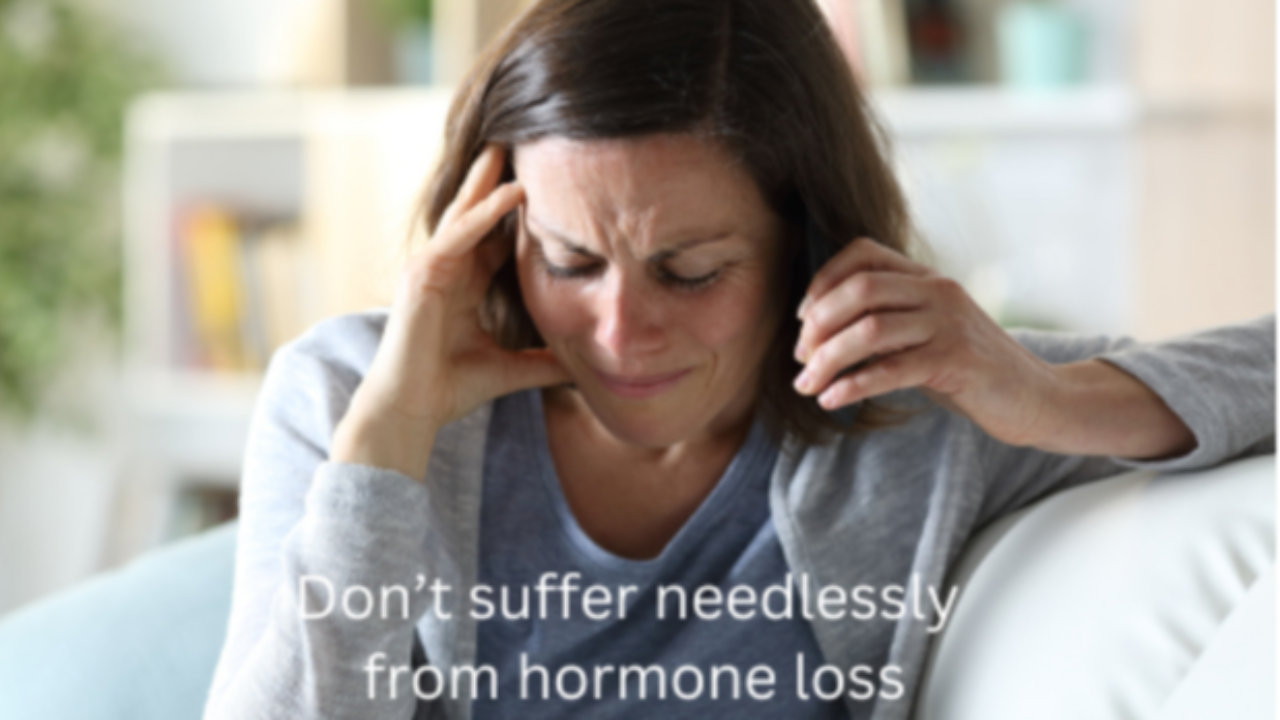Hormone Loss, Depression, and Suicide. Is There a Connection?
Sep 30, 2024
Recently, a dear friend confided that she was really starting to suffer with some perimenopausal symptoms. She just happens to be in the late perimenopausal stage and will probably be transitioning into menopause soon. Like many, if not most women in their 40s and 50s, she is also under a significant amount of stress. She said something that was sad, chilling, and all too common. Her comment was, “I can see why women going through this commit suicide.”
For quite awhile now, I have been reading about the link between hormone loss and its link to brain disfunction and mood disorders, including suicide. The website Hormones Matter has posted many articles by women who developed depression, hopelessness, and suicidal thoughts following hysterectomy. A study in Korea showed that women who had premature ovarian failure (ovaries that weren't producing hormones normally) had a much higher rate of suicidal thoughts. A study of Japanese mothers of teens showed that suicidal thoughts increased significantly during perimenopause and menopause.
What is the common denominator between hysterectomy, premature ovarian insufficiency, perimenopause, and menopause? Obviously, it’s the loss (or fluctuation) of hormones.
Unfortunately, in my opinion, one of the biggest problems for women who have had a hysterectomy or those who have just gone through menopause naturally, is that they haven’t been given appropriate hormone replacement.
The vast majority of women who have had a hysterectomy are placed on estrogen alone (or sometimes estradiol plus testosterone) being told that they do not need progesterone since they don’t have a uterus.
If you have seen me, or read my e-book, you know that is absolutely not true!
Progesterone is necessary for health. The only women who need progesterone are those with a brain, breasts, or bones! Pretty much every cell in our body requires progesterone to function optimally.
Also, for the vast majority of women, including those who have had a hysterectomy (or gone through menopause naturally), androgen levels are never addressed. The loss of DHEA and testosterone can cause severe fatigue, apathy, depression, loss of libido, brain fog, memory issues and loss of brain, muscle, and bone tissue. These hormones should be measured and replaced appropriately.
Stress and its impact on cortisol is another big issue that needs to be addressed. All women who have had a hysterectomy, and most women who are perimenopausal or have gone through menopause naturally, have had tremendous stressors. Yet most women never have had their cortisol levels measured. Chronic or severe stress can cause adrenal fatigue, with resultant brain fog, memory problems, exhaustion, depression, and overwhelming hopelessness. Adrenal health needs to be addressed. If a woman has adrenal fatigue, she will benefit from getting all hormones optimized. She may also need targeted and thoughtful supplements, improved sleep environment, gentle movement, healthy relationships (sometimes with improved boundaries), and stress reduction and stress management techniques.
How do you determine if each of these hormones (estrogen, progesterone, testosterone, DHEA, and cortisol) are depleted or in ideal range?
By accurately measuring tissue levels of these hormones through saliva testing. Once hormone levels are known, women should work with a specialist who utilizes saliva testing and uses low-dose, bio-identical hormone replacement to get each hormone into ideal range.
Being able to recover after hysterectomy or natural menopause requires looking at and replacing all of the missing pieces, not just estrogen.
Stay connected with news and updates!
Join our mailing list to receive the latest news and updates from our team.
Don't worry, your information will not be shared.
We hate SPAM. We will never sell your information, for any reason.
